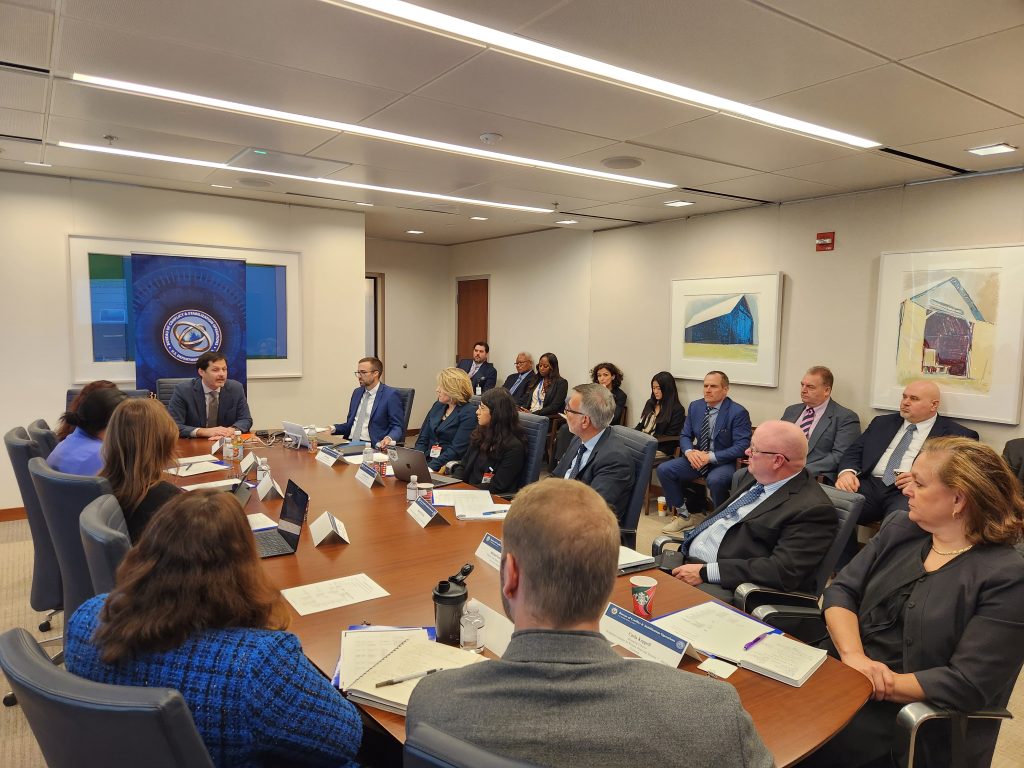The University of Notre Dame’s Keough School of Global Affairs will work closely with the US Department of State on a new initiative that will enable students to conduct cutting-edge global conflict prevention research.
As part of the new Academic Centers of Conflict Anticipation and Prevention partnership, the department’s Bureau of Conflict and Stabilization Operations (CSO) has engaged several universities to provide supplemental research, analysis, and data to enhance its ability to anticipate, prevent, and respond to global conflict. CSO is charged with leading the formulation and implementation of conflict prevention and stabilization strategies, policies, and programs.
Other partners include Florida International University, Georgetown University, George Mason University, the University of Alabama, the University of California, Berkeley, and the University of Utah.
The innovative partnership will provide undergraduate and graduate Keough School students with access to the Department of State’s various databases and research tools, including its Instability Monitoring and Analysis Platform. Officials use the tool to monitor conflict risks and implement evidence-based policies to prevent conflict.
Students will begin their research in spring 2024 as part of a forthcoming class that will deal with conflict prevention issues. Working with Keough School faculty advisors, they will conduct research projects on conflict-related issues requested by CSO. They will also develop professional skills and contacts to help prepare for future global policy careers.
This partnership is a fantastic opportunity for our students to engage in proactive conflict prevention and make an impact on real-world policy.
“This partnership is a fantastic opportunity for our students to engage in proactive conflict prevention and make an impact on real-world policy by using their skills to analyze real-time data,” said Maura Policelli, executive director of the Keough School of Global Affairs’ Washington Office and professor of the practice. “It reflects the Keough School’s ongoing focus and commitment to policy-relevant work that addresses critical global challenges.”
Notre Dame was selected, in part, because of the Keough School’s proven track record of policy-relevant conflict prevention work, most notably through the Peace Accords Matrix (PAM), a key initiative of the school’s Kroc Institute for International Peace Studies.
PAM houses the world’s largest existing collection of implementation data on intrastate peace agreements, and its database serves as a valuable source for analysis, which the Kroc Institute uses to support the negotiation and implementation of peace accords, including the historic Colombian peace accord.
The Keough School has also helped support the implementation of the Global Fragility Act, a whole-of-government approach to prioritize conflict prevention and transform partnerships to focus on peacebuilding and stabilization in fragile states. The school has long supported implementation of the act by arranging faculty briefings for the Department of State, convening expert panels, and supporting student research that informs policymakers’ work.
“CSO is thrilled to expand and deepen its engagements with the Keough School through this partnership,” said Keith Noble, CSO’s chief data officer. “This partnership represents a first-of-its-kind opportunity for students to work on real-world, conflict-related requirements to help the department address existing and emerging policy opportunities.
“Moving forward,” Noble said, “contributions from the Keough School will help further CSO’s ongoing efforts to support key US government priorities in the conflict space to include the women, peace, and security and climate agendas.”
Contact: Tracy DeStazio, associate director of media relations, 574-631-9958 or tdestazi@nd.edu



